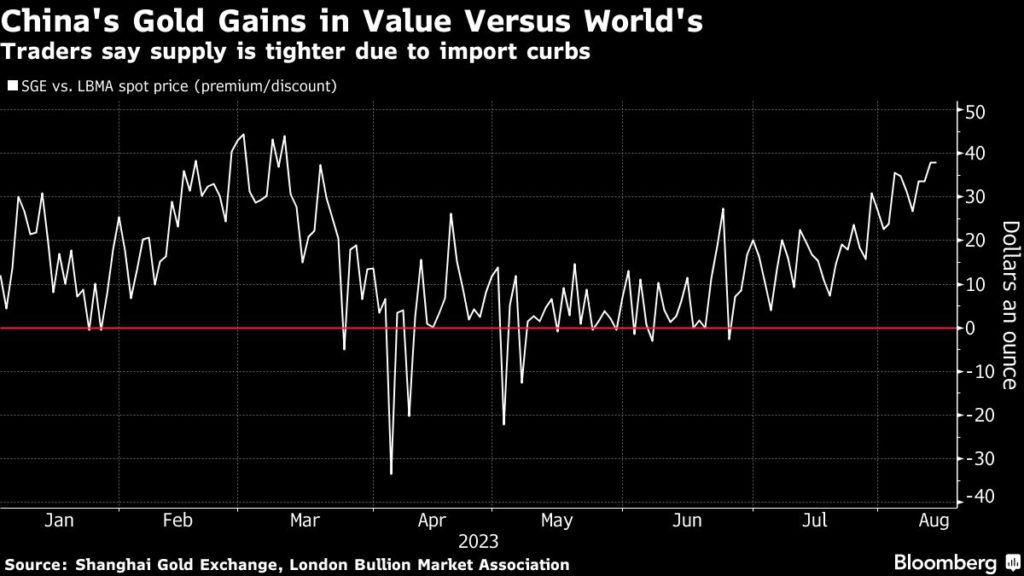China’s gold prices rising higher than rest of world due to import curbs

China’s gold price is rising against levels in London, a trend that local traders say is due to government curbs on imports of the precious metal.
The Shanghai spot price was more than $40 an ounce higher than that in London on Aug. 14, according to Bloomberg calculations based on exchange data. That’s the biggest premium in more than five months, with the gap steadily widening from late June even as consumer demand in China remained sluggish.
Authorities moving to limit gold imports appears to be a major driver behind the growing gap, according to traders and importers.
The government has reduced or stopped issuing import quotas to some local banks, according to people familiar with the matter, who asked not to be identified as the information is private. That’s resulted in a drop in flows over the last few months, two of the people said, and there’s no immediate prospect of the affected quotas being issued again. The reason for the curbs isn’t clear.

China vies with India as the world’s biggest buyer of gold, so demand and supply trends there can influence global prices for the metal. Chinese demand has struggled to regain momentum as the country’s economic jitters turn consumers off gold jewelry or investments in the metal, with purchases in those categories still below long-term averages. As recently as June, prices in Shanghai were at a discount to the international market.
Money issues
The swing to a premium is being driven by tighter supply in China, the World Gold Council said in a report last week, without elaborating.
While some bullion is still making its way to China, the volume of orders is weak, one of the people familiar with the matter said. The country’s imports of non-monetary gold fell 35% in June from the previous month to the lowest level since January.
The People’s Bank of China typically issues quotas to financial institutions for the amount of gold allowed to enter the country, though the exact details of permitted volumes are never publicly disclosed.
The PBOC didn’t respond to a faxed request for comment.
Gold could be an attractive investment for Chinese facing a weaker domestic currency, and authorities may potentially stymie that trade — lending some support to the yuan — by squeezing import quotas. The offshore yuan fell toward its weakest level this year on Monday after an array of disappointing economic data fueled worries about sputtering growth.
The outlook for Chinese gold demand looks fairly lackluster, according to Nikos Kavalis, managing director at consultancy Metals Focus Ltd. “It’s not great, it’s not bad,” he said. “But what we’re definitely seeing is tighter supply conditions.”
{{ commodity.name }}
{{ post.title }}
{{ post.date }}




Comments